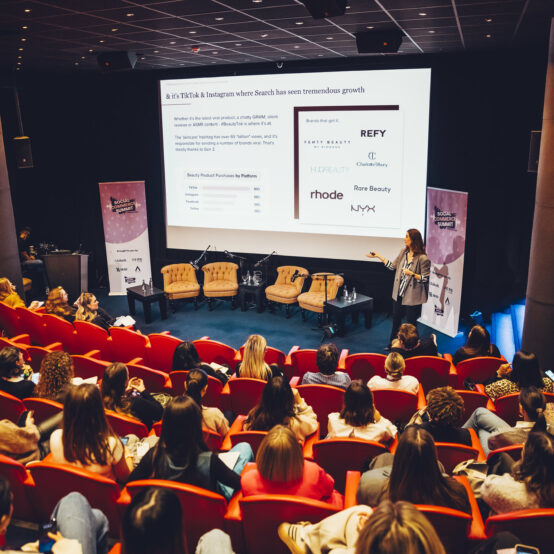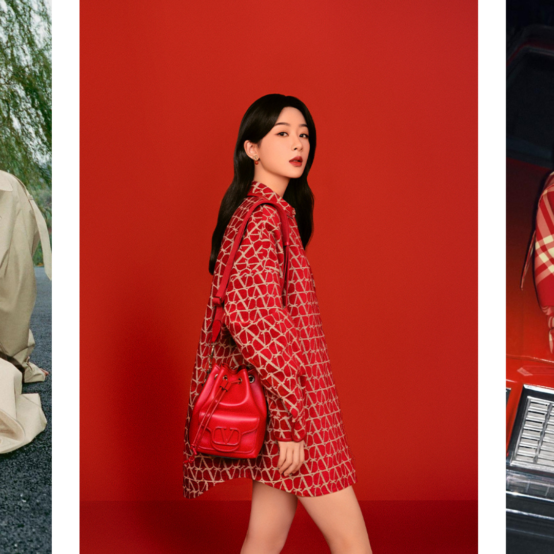10 Digital Luxury Marketing Campaigns You Need to Know

We’re a luxury digital marketing agency, so we know the importance of standing out as a luxury brand online. Embracing digital has enabled luxury brands to maintain relevance with consumers, grow their business, and boost brand identity. And digital investment is only set to grow further. From Hermès to Valentino, these are the top 10 digital marketing campaigns that have made waves in the luxury brand space in the last five years.
Hermès – “Play It Like Hermès”
This is an example of a luxury fashion brand displaying its more playful side, from those who brought us the iconic Birkin Bag. Hermès celebrates the art of play through quirky and colourful shots of their bags, clothing and accessories.
Moncler – “Art of Genius”
Moncler exploded into 2023 with this experiential event, curated by leading artists, celebrities and brands at Olympia London.
Their website allows consumers to explore the nine curated show spaces from the evening and showcases videos of artists such as Alicia Keys and Pharrell – all wearing the Moncler collection.
Gucci – “Hallucination”
For their Spring 2018 campaign, Gucci partnered with Spanish artist, Ignasi Monreal, to create an enticing parallel reality – Gucci style. See the video here.
The eye-catching campaign incorporated in-store AR and VR installations, giving the consumer an entire experience into Gucci’s art gallery.
Chanel – “Chanel Try On – Virtual Makeup”
In a post-pandemic age where consumers shop more online and are less keen to share store beauty samples with strangers, Chanel have made makeup virtual.
Users allow camera access to try on a variety of Chanel’s makeup shades and voila – that’s a new favourite red lipstick chosen.
Balmain – “Virtual Army”
A particularly innovative campaign we’ve come across is by the luxury French fashion house, Balmain. Three custom designed CGI models are the ‘virtual icons’ that make up the Balmain Army, dressed in hyper realistic garment simulations. Their creative director Rousteing wanted to “bridge the gap between fashion and technology” and through this, bring modern relevance to fashion.
Valentino – “Pink PP”
For this 2022 campaign, Valentino brought together Zendaya and Euphoria director Marcell Rév to create a dreamlike short film where Zendaya finds herself in an all pink, monochromatic world.
The impact of the campaign was felt throughout the fashion industry, with Valentino’s hot pink being dubbed “the colour of the season”. The inclusion of the Euphoria actor and cinematographer also widely appealed to younger consumers familiar with the show.
Rolex – “Celebrating Cinema”
Rolex has long partnered with cinema, including serving as the Oscars’ ceremony sponsor for the last six years. This campaign boasted a cinematic trailer which featured Rolex alongside iconic films from throughout history. By aligning themselves like this Rolex firmly positions themselves as a brand which, like film, aims to be ingrained in consumers’ memories and aspirations.
Louis Vuitton – “Bravery High Jewelry”
To celebrate the 200th anniversary of the birth of Louis Vuitton, the brand decided to pay tribute to their founder in their 2021 marketing strategy.
The webpage pays homage to the chapters of his life, tracking his story as a teenager across France to Paris. The video campaign mirrors this historic journey, as the brand ambassador journeys through a forest wearing the jewellery collection, eventually arriving at Louis Vuitton in the capital.
By leaning into their history, Louis Vuitton markets themselves as both rich in legacy and timeless.
Versace – “The Clans of Versace”
This campaign video pans a long line of models whispering the iconic fashion brand’s name to the next in line and at the end, it’s revealed how the word Versace should be pronounced. The video exemplifies the exclusivity of Versace’s ‘clan’ which consumers may aspire to be part of.
Yet this campaign involved the longest ever advertising image, with 54 models. Stretched out, the image embodies togetherness and support. This campaign therefore manages to simultaneously embody exclusivity and inclusivity: an ideal position for a luxury brand.
Prada – “Feels Like Prada”
Leaning into physical touch after years of the pandemic was a smart move for Prada’s 2021 campaign. The campaign video focused on the feeling and sounds of clothes and surroundings, embracing the online viral trend of ASMR. They also created citywide experimental initiatives. Objects, from buildings to croissants, were covered by the collection patterns and sparked online viral moments across the world.
The Digital Approach to the Luxury Marketing Space
As you can see from the campaigns above, different kinds of digital campaigns work for different brands. Some of the most popular approaches include:
- A focus on heritage, history and journey
- Leaning into the current news and showing awareness of consumer’s situations, particularly in a post-pandemic time
- Partnering with other artists, collaborators and brands
- Embracing social media, viral trends and targeting younger generation’s interest in the brand
- Investing in AI and technological advances
The Importance of a 360 Marketing Strategy
When it comes to luxury advertising, a 360 digital marketing campaign can make sure that the content of these campaigns is reaching the right consumers.
That’s why it’s important to invest across social, seo and search in order to create a wholly effective campaign as a luxury brand.









